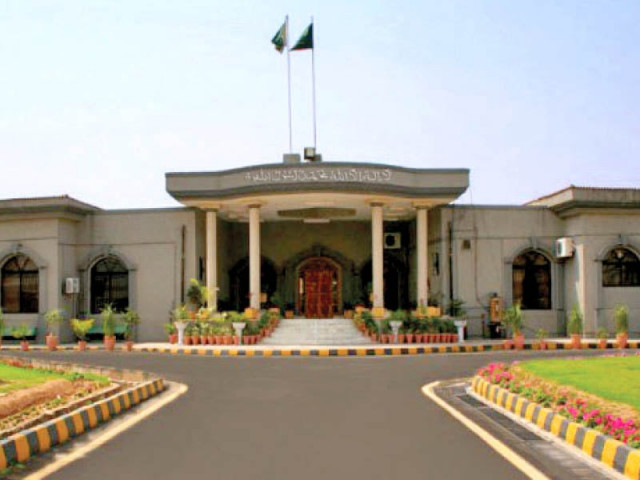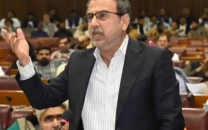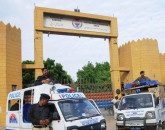AG opposes open trial of high court judges for misconduct
Chief justice to hold SJC meeting on Tuesday to consider case

PHOTO: EXPRESS/FILE
Sources told The Express Tribune that the Chief Justice of Pakistan (CJP) Mian Saqib Nisar has summoned an SJC meeting today (Tuesday) to consider the case of the Islamabad High Court (IHC) judge accused of misconduct. The AGP office has framed nine charges against him.
The Express Tribune has learnt that the IHC judge has engaged senior lawyer Hamid Khan as his counsel to plead his case before the council today.
Earlier, Makhdoom Ali Khan had represented him.
The SJC on April 3 sought a reply from the AGP office on his plea for open trial. The AGP office on Monday submitted a two-page reply opposing the judge’s plea, the source said.
Self-accountability: Five superior court judges appear before SJC
The reply has been drafted by Maulvi Anwar ul Haq Advocate, who has been hired by the AGP office as a special prosecutor for the cases of alleged misconduct by two IHC judges.
“The conduct of a judge cannot be discussed in open proceedings as it is also better for the accused judges that proceedings be conducted in-camera,” it said, adding, “Likewise, the proceedings of the Judicial Commission of Pakistan [JCP] on the appointment of superior courts’ judges are also held in camera.”
The AGP has already proposed summary inquiry of the accused judges.
Presently, the SJC is considering cases of alleged misconduct by five high court judges – two IHC judges, two Lahore High Court (LHC) judges, and one from the Sindh High Court (SHC).
Wasim Sajjad is representing the other IHC judge. Khawaja Haris is pleading the cases of the two LHC judges, while Munir A Malik is representing the SHC judge before the council.
Interestingly, the council is trying judges after a gap of almost five decades. The council has not initiated a trial of any high court judge since 1971.
According to Article 209 of the Constitution, the SJC comprises the chief justice of the Supreme Court (SC), the two senior-most judges of the SC, and the two senior-most chief justices of the high courts.
On the demand of the legal fraternity, former chief justice Anwar Zaheer Jamali on October 31, 2015 announced the reactivation of the SJC to pursue complaints pending with it for a long time.
Recently, Pakistan Bar Council (PBC) member Raheel Kamran Sheikh wrote two letters to all PBS members in which he raised questions about the process of accountability of superior courts judges.
Judges misconduct: SJC seeks written reply from AGP
Barrister Sheikh said the PBC should insist on a press briefing or a press release regarding the SJC proceedings from the council's secretary.
In the latest communication, Sheikh admitted that in-camera SJC proceedings did not violate Article 10A of the Constitution, which called for fair trial and due process.
“Therefore, it is in the public interest to withhold information about any particular complaint to avoid scandalising any judge for as long as he serves on the bench," Sheikh wrote, adding, “A judge accused of misconduct may misuse the open proceedings for undue advantage by maligning one or more members of the SJC, even on considerations totally extraneous to his defence.”
However, he said, the SJC maintains complete secrecy and confidentiality over the entire process of judicial accountability, notwithstanding the fundamental right to information under Article 19-A of the Constitution.
He added that notwithstanding the bar of jurisdiction contained in Article 211, proceedings before the SJC are not immune from challenges before the SC.


















COMMENTS
Comments are moderated and generally will be posted if they are on-topic and not abusive.
For more information, please see our Comments FAQ